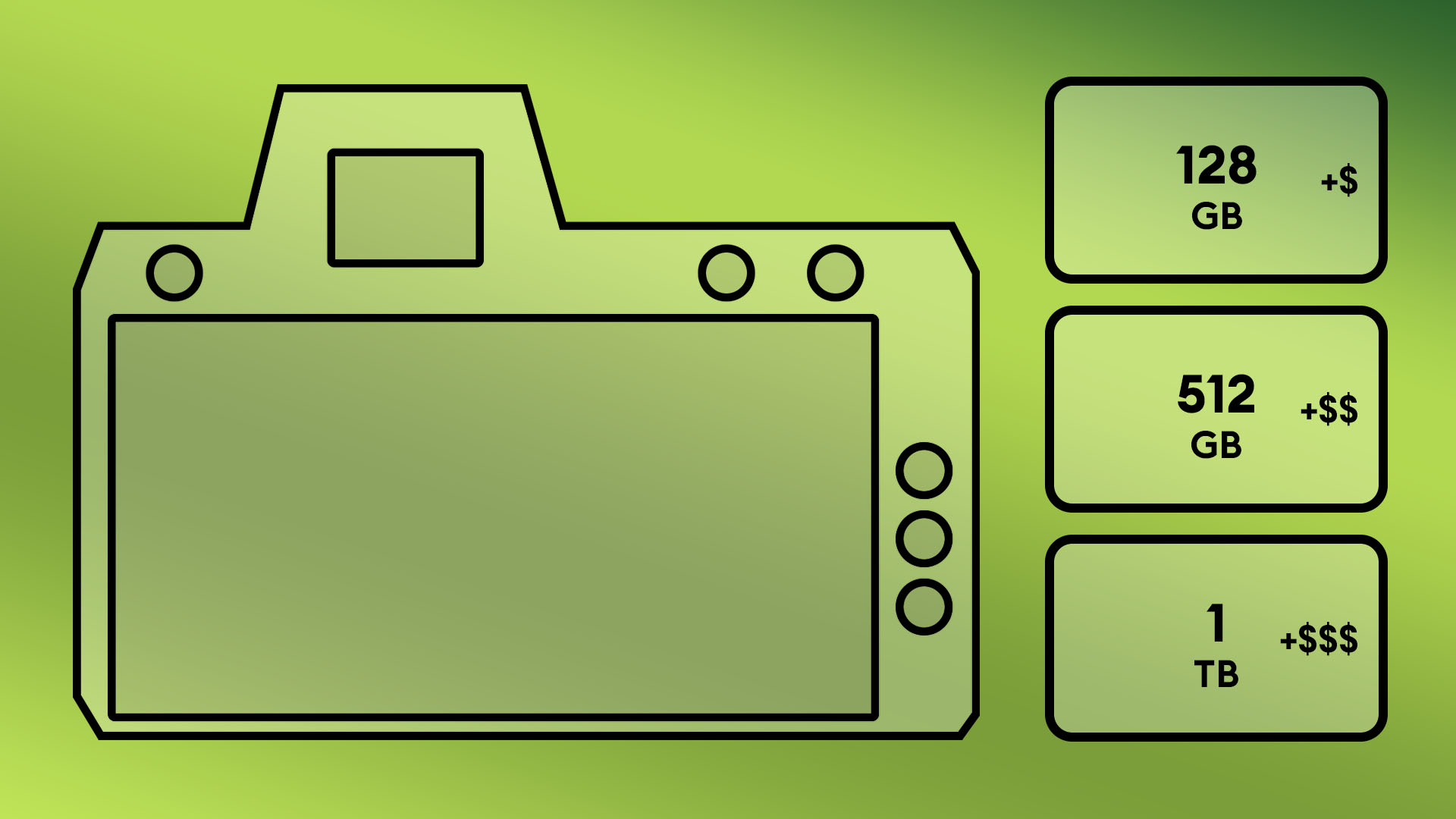

In a recent discussion about product innovation with one of the leading camera manufacturers, we raised the idea of including a built-in high-capacity internal memory for enhanced camera usability. I’ll dive into the advantages and disadvantages of something like this, but the outcome of that conversation was that the manufacturer was very curious to hear from you guys. In the end, public opinion can certainly influence and motivate a manufacturer to consider including the features we, as customers, would like to see. It’s not that the idea of having a built-in memory for allowing direct recording within a camera is new, but to the best of our knowledge, such a feature has never been offered or included in leading mirrorless camera bodies. One of the few camera manufacturers still offering such an option is Ricoh with their GR camera models. But to be honest, Ricoh is serving a different segment of users from the one we are interested in. This is also reflected in the somehow limited 2GB memory size, which might be good for capturing photos but maybe not so much for video.The advantages of having a built-in camera memory Maybe the most significant point for me is the idea of removing the risk of leaving home without a memory card. Anyone who tells me this has never happened to him/her before is invited to write me personally…The big win is that the camera will “always work.”Then, there’s the possibility of making single-card slot cameras “professional” again by using internal memory as a backup “second slot” for recording when needed—just be sure to pair it with a memory card of matching capacity.If the existing camera already has two card slots, the built-in memory can serve as another backup or for offloading footage so that the card can be physically handed over if needed. The disadvantages of having a built-in camera memorySuch a feature will drive the camera’s cost up; if we are talking about 1TB of internal memory, it could be around $150. So, would you be willing to pay the additional cost?The price of flash memory is constantly changing, and within the lifespan of developing a camera body, the manufacturer might lose money, meaning buying the flash memory at a rather high cost but selling the camera at an attractive price to better compete in the market.And there is the issue of reliability. What happens if recording to the camera’s built-in memory fails? How do we, as users, treat such a scenario? Will we blame the manufacturer? I can only guess that a case like this could become a major headache for the manufacturer, one that they certainly would not be looking forward to.It is beyond my technical ability to assess whether such an idea might ease the issue of camera overheating or worsen it.This poll uses Javascript. If you cannot see the poll above, please disable “Enhanced/Strict Tracking Protection” in your browser settings.So, here you have some of the pros and cons of having a built-in memory card. Of course, you are welcome to share your opinion in the comment section below. And remember that this particular manufacturer will be keeping an eye on the results of this poll!






